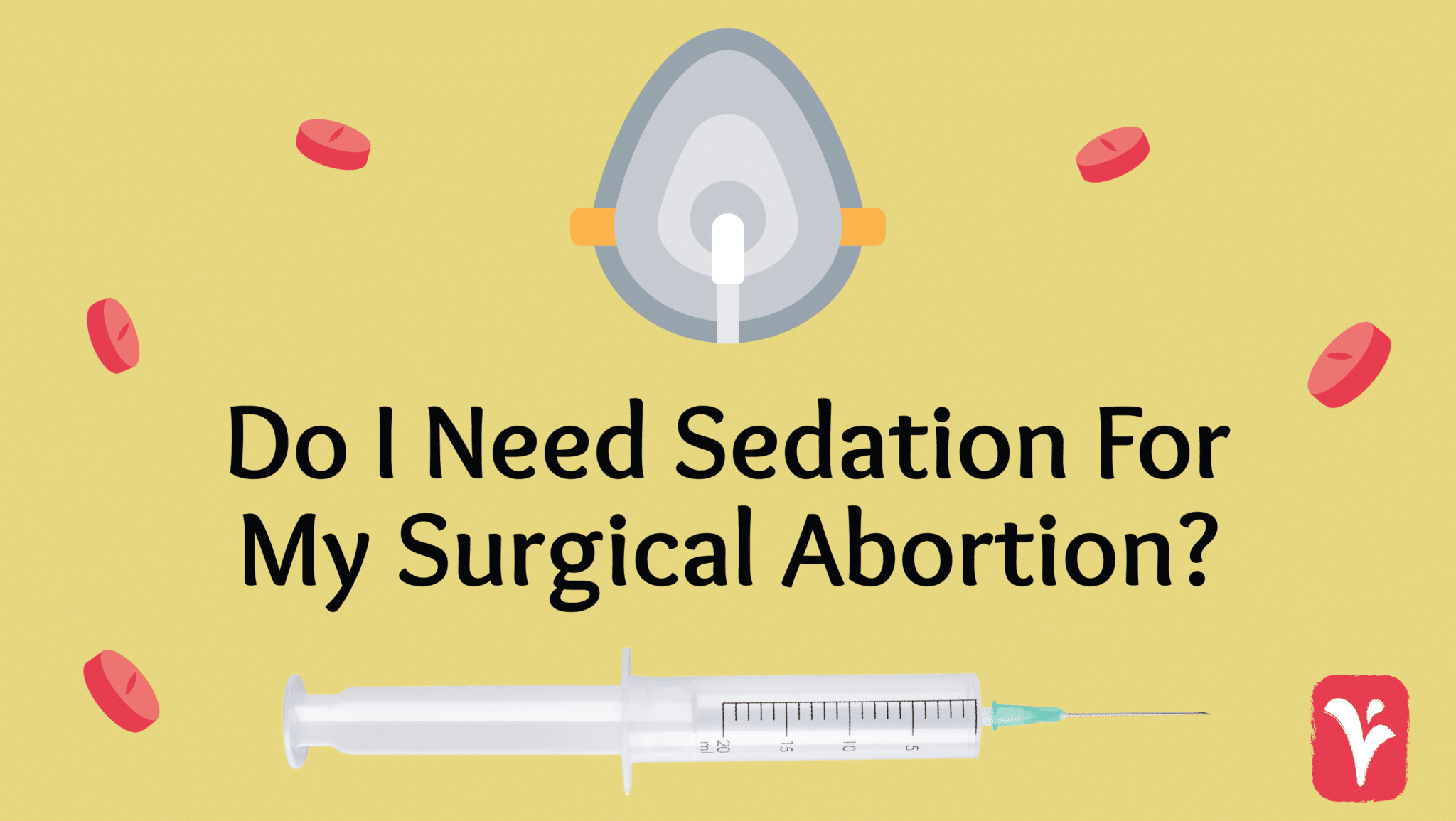You might be wondering if you can have a surgical abortion without sedation. In our recent blog, we talked about how surgical abortions are among the safest medical procedures out there. Surgical abortion is safer than Botox, getting your tonsils out, or a wisdom tooth extraction! However, mild to intense cramping is still a normal part of the process, both during and afterward. While some do manage discomfort from cramps and anxiety with breathing exercises or the use of our nitrous oxide (also known as laughing gas), others may feel more comfortable using other sedation measures throughout the procedure. At Austin Women’s Health Center, we want you to feel comfortable when accessing abortion care, and we offer three ways to approach the anxiety and discomfort you may feel. In this blog, we’ll discuss the options we offer, how they may help you feel at ease, and how to manage discomfort at home.
Nitrous Oxide
We will provide nitrous oxide to you free of charge at the time of your surgical abortion if you wish to use it. Also known as “laughing gas,” nitrous oxide is commonly used during dental procedures like wisdom teeth removal. It’s administered through a mask that you hold throughout the procedure, and the effects of nitrous oxide begin to lessen after the mask is removed. Nitrous oxide can help you feel more relaxed and calm, and can even alter your perception of time, making it feel as if the procedure is over faster.
Diazepam
Also included in the cost of surgical abortion is diazepam, a benzodiazepine also known as Valium. Valium is a medication taken orally that clinic staff will administer to you at your visit. While valium doesn’t directly help with pain relief, it does reduce anxiety which helps your body relax. When we’re relaxed, our level of discomfort can often improve. Diazepam is a wonderful option for patients who experience a great deal of anxiety while in the waiting room, in medical offices, or during medical procedures. It’s important to keep in mind that, generally, using diazepam with IV (intravenous) sedation is not an option.
IV Sedation (Twilight Sedation)
In addition to nitrous oxide and Valium, conscious sedation is available for surgical abortion patients for an additional $50. Our IV sedation includes both the pain medication fentanyl and the anxiety medication Versed. Together, the two medications can create what’s known as “twilight” sedation, meaning many patients feel like they’re sleeping through the procedure — even though they’re conscious! However, some patients may not feel like they’re sleeping, so be sure to speak with your counselor about additional ways to manage anxiety and discomfort through the procedure, like using nitrous oxide in addition to IV sedation and good breathing exercises.
Our patient surveys indicate IV sedation is a great way to improve your surgical abortion experience because most who use it indicates lower levels of pain. It can be especially helpful for people who are uncomfortable in medical settings.
What to Know if You’re Using Sedation
Some measures of sedation require additional factors to be met before we can administer them. At Austin Women’s Health Center, your health is our top priority and we want to make sure you have a safe and supportive ride home whenever you use sedation. Because of this, we require an escort for any patient using Valium or IV sedation. An escort can be a friend, family member, or any trusted person in your life who can provide you with a ride home. We will collect this information ahead of time before your surgical abortion and cannot proceed until that information is obtained.
If there isn’t a supportive person in your life to trust with this decision, you can call The Bridge Collective (TBC) for assistance with a volunteer ride. TBC is an all-volunteer-led organization that provides free rides and homestays to people in the Austin area seeking an abortion, but who are without any transportation or place to stay.
Post-Surgical Abortion Discomfort
Mild to intense cramping during a surgical abortion is expected, and it’s also common to experience cramping afterward. Following a surgical abortion, cramping and mild to moderate bleeding is normal as your uterus contracts. While Austin Women’s Health Center has provided prescription pain medication to patients in the past, our clinic will begin discontinuing this medication for abortion care after the new year. Instead, we’ll make sure to thoroughly prepare you for an alternative protocol we recommend involving ibuprofen and Tylenol.
Here are some other things that may bring you relief following a surgical abortion:
- Heating pad — Heating pads can be purchased for less than $20 on Amazon ahead of time. Additionally, most drug stores sell heating pads in their pharmacy section.
- Staying hydrated. Studies have shown that when we stay hydrated, our levels of pain and discomfort may improve. It can be difficult to drink water when we’re not feeling well, but try to keep a gallon of water on hand to ensure you have access to fluids throughout the day.
- Supportive people. Most people are back to their usual activities the same or next day following a surgical abortion, so be sure to interact with supportive people who can remind you that you’re the expert of your own life and that you made the best decision that felt right for you.
